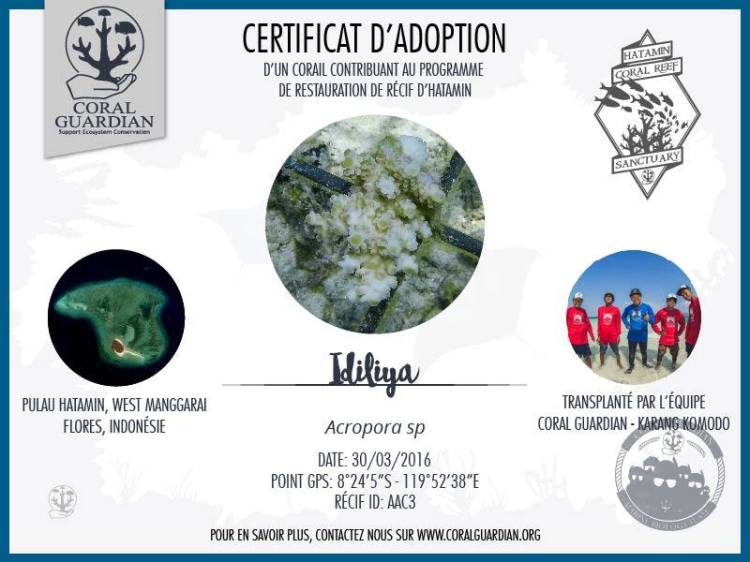Martin Colognoli and Guillaume Holzer are the founders of the non-profit organization named Coral Guardian that was created in 2010.
Their mission is to find new approaches to preserve the marine habitats while working towards sustainability by getting everyone involved: businesses, general public and local communities. They are specialized in coral ecology and restoration.

Basically, the present work of Coral Guardian consists in installing artificial reefs where they plant baby corals. This does not only help the marine environment but provides the local communities with an eco-friendly touristic attraction that creates jobs for some locals. They quickly see the benefits of stopping the dynamite fishing and switch to a sustainable model for eco-tourism. Snorkeling tours are offered already every day to take an underwater look to how the coral grows over the interesting sculptures built as a substratum.
They have not only been successful so far but also they get extremely creative when it comes to communication. Martin & Guillaume produce films to promote their cause and rise awareness of the need to preserve the seas. They are so good that some have been awarded in film festivals!
Source: peterdivingyacht.com
Dynamite fishing is a severe problem in Indonesia. Many fishermen keep using this destructive technique that depletes all marine life from the impact area, as the base of the local ecosystem – corals – are removed.
In collaboration with Vila Ombak and Gili Eco-trust, Coral Guardian has conceived, developed, and installed the first and largest coral reef restoration program dedicated to educate people to marine conservation through an educative self-guided snorkeling park.
Check their amazing ongoing programs here!
Adopt a coral!
Coral Guardian offers to adopt an individual coral that was grown in a coral nursery. Once these corals reach a certain size, they’re transplanted to local reefs that have been damaged or are suffering from coral bleaching or dynamiting.Coral Guardian go so far as to let you name the coral you’re adopting, and give you its GPS coordinates, allowing you to visit, should you ever be in the area.
Of course, there’s nothing stopping you from simply donating to any marine organization, adoption or not. The adoption element helps create a closer connection, however symbolic, with the cause you’re donating to. And in a culture where people accumulate always more stuffs it is a great idea for Christmas or a Birthday gift!

Here is Lira, Dinara, Yulia & Sylvie’s adopted coral to go and visit by Flores Island near Komodo in Indonesia!

Awareness programs and marine ecology Education is a sustainable “investment value” for the coral reefs and the communities survival. They are developing a program that will introduce the local marine ecosystems and marine ecology within a teaching framework. Awareness programs are intended to be delivered to local schools. They also provide English lessons adapted to marine ecology. The awareness of local communities allows a social and economic development for villages, mainly thanks to ecotourism, an emerging market in Bali.
Local communities are entirely dependent on fisheries resources. 90% of their protein intake comes from marine resources, they are also the first to be impacted by the decline of local marine ecosystems. “Well managed” reef can produce between 5 and 15 tonnes of fish and seafood per square kilometer. Their development programs are used to develop solutions to help them achieve sustainable management of the ecosystems they depend so strongly.
By developing a community participatory program, local fishermen will help significantly reduce pressures on marine biodiversity. This will result in improved comfort of life in local communities. In addition, the combination of environmental, economic and social perspectives will result in regeneration of local fish stocks, allowing the rest of the village to continue fishing, this time permanently.
En savoir +: https://www.coralguardian.org/en/coral-reef-conservation/#.V17w–YrLrc
https://www.coralguardian.org/en/#.Vz_Dj5MrLrc
Categories: Awesome PEOPLE, Ocean GREAT IDEAS






